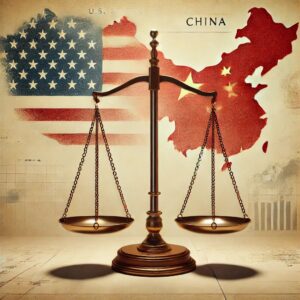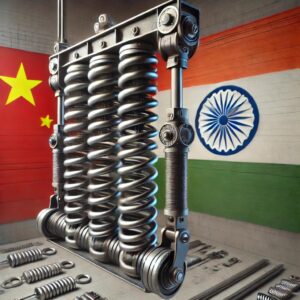Years ago, I spoke at a major technology event on how to protect IP from China. I rarely use notes when I give a speech, which and I often riff on various things. At some point during that speech, I mentioned how technology companies tended to get into more trouble when it comes to China than our clients in other industries. I talked about how tech companies focus on building things as quickly as possible, without worrying about much else. I talked of how tech companies are often reluctant to hire good management, choosing instead to put their money into the core of their business — their tech people.
I then talked about how this modus operandi makes sense when operating domestically, but it can be a disaster for China, where it is usually impossible to “fill in” legal foundations later.
In describing tech companies and their problems to others, I use the following as my prime example, taken from at least a dozen real life examples in just the last year.
Tech Company: We just completed our Kickstarter campaign, and we are now ready to get serious about protecting our IP in China.
One of our China Lawyers: Great. Where are you right now with China?
Tech Company: We have been working with a great company in Shenzhen and we are now wrapping up the product and it will be ready in a few months.
China Lawyer: Do you have any sort of agreement with this Chinese company regarding your IP or production costs, or anything else?
Tech Company: We have an MOU (Memorandum of Understanding) that talks about how we will cooperate. They’ve been really great. They have told us they would enter into a contract with us whenever we are ready.
China Lawyer: Can you please send me the MOU? Have you talked about what that contract will say?
Tech Company: Sure, we can send the MOU. It’s one page. No, we haven’t really talked much beyond just what we need to do to get the product completed.
China Lawyer: Okay, we will look at your MOU and get back to you with our thoughts.
Then, a day or two later a conversation like the following ensues:
China Lawyer: We looked at your “MOU” and we think there is a good chance a Chinese court would view that MOU as a contract. (For why we say this, check out China LOI and MOU: Don’t Let Them Happen to You) Also, the Chinese language portion of the MOU — which is all that a Chinese court will be considering — is different from the English language portion. The Chinese language portion says that any IP the two of you develop (the Tech company and the Chinese manufacturer) belongs to the Chinese company. So based on what we have seen so far, the Chinese company owns your IP. Unless we can change this, there is no point in our writing a Product Development Agreement because your Chinese manufacturer is not likely to sign that.
Tech Company: (And I swear we get this sort of response at least 90 percent of the time) I’m not worried. I think you have it wrong. I’m sure they will sign such an agreement because we orally agreed on this before we started the project.
China Lawyer: That’s fine, but I still think it makes sense for you to make sure the Chinese company will sign a new contract making clear that the IP associated with your product belongs to you, because if they won’t sign something that says that, there is no point in you paying our China lawyers to draft that.
Very few Tech companies have come back to us with an agreement from their Chinese manufacturer to sign, and when they don’t, that’s when our international dispute resolution lawyers have to step in. Or not.
We have lately been getting a slight variation on this theme, where the Tech company is farther along in its product development and is actually ready to sell its product. This newer situation is exemplified by the email below, which is an amalgamation of various recently received emails:
I am hoping your firm can help us figure out our best course of action. [A description of their company and their Tech product then follows, along with how they ended up going with a particular Chinese manufacturer and why they failed to seek the advice of a China lawyer until now.]
We started our relationship with our current manufacturer a year ago and our lawyer told us that POs are contracts in China. We sent our China manufacturer our product design and paid for the molds, and they shipped us the products. We recently learned that our Chinese manufacturer has been using our product pictures as marketing material on Alibaba and selling our products all over the world. I also just learned that our Chinese manufacturer also has filed for a design patent for our design in China.
We just started the working relationship with [online retailer]. Our manufacturer doesn’t know that. All we told them is that we are working with a big client and if the Chinese company doesn’t sign any agreements with us, we’re not going to place new orders. They then told us they are willing to sign a non-disclosure agreement with us.
We’re filing design patents in the US. If we continue to work with them during this period, which agreement will help us get the best protection?
Since they already claim to own our designs in China, will that prevent us from working with a new manufacturer? Do you advise we work with a new manufacturer at this point?
Our response is usually something like the following:
A PO is not really a contract in China; it is the placing of an order. Unless your PO discusses IP (which would be unusual), it likely will not help here. Some Chinese courts do not see POs as a contract at all and some Chinese courts will not look at a document not in Chinese. The ideal is a Chinese language contract sealed by the Chinese company.
Our biggest concern is that this manufacture is seeking a design patent for your product. This will no doubt pose problems for you and for any new Chinese manufacturer you might seek to use. Depending on how far along your present manufacturer is in the patent process, it may be able to sue you and your new Chinese manufacturer for patent infringement damages and force production of your product in China to cease. At minimum, your Chinese manufacturer will be able to cause you all sorts of problems unless you can stop or invalidate its design patent. There is a good chance this Chinese manufacturer owns your product in China, and it can use that ownership to control what you do there.
If you seek to go to a new Chinese manufacturer, you can be sure of two things. One, your old manufacturer will NOT give you the molds you think you bought from it, and two, it will use its design patent to, at minimum, block your products from leaving China. It also may sue you for patent infringement damages in a Chinese court. In the meantime, making your product in China will be a high-risk proposition.
Based on the information you have provided, it appears you have four options, none of which are terribly good:
1. You leave China entirely and start manufacturing in some other country. Is this possible?
2. You seek to block or invalidate your existing manufacturer’s design patent. This will not be accomplished quickly or inexpensively.
3. You try to strike some sort of deal with your manufacturer whereby it assigns the patent to you and in return you agree to keep using this manufacturer to make your product for x number of years. It may agree to this if what you can pay it will exceed what it can make by selling your product on its own and if you commit to buying a certain amount of product from them each year at inflated prices. A non-disclosure agreement is not likely to help you at this point and your manufacturer almost certainly knows this. See Why Your NDA Does Not Work for China. You need your manufacturer to sign a contract that actually makes clear what IP belongs to you and your manufacturer’s limitations in using your IP. At this point, it sounds like you need a China-centric Manufacturing Agreement, but I doubt your manufacturer will sign this.
4. You go to a new manufacturer in China. If you do this, there is a good chance your existing manufacturer will not return your molds and it also might sue you or threaten your new manufacturer with an IP lawsuit.
For more on how you can prevent the above from happening to you, I suggest you read China NNN Agreements and China Product Development Agreements.
NOW!

























